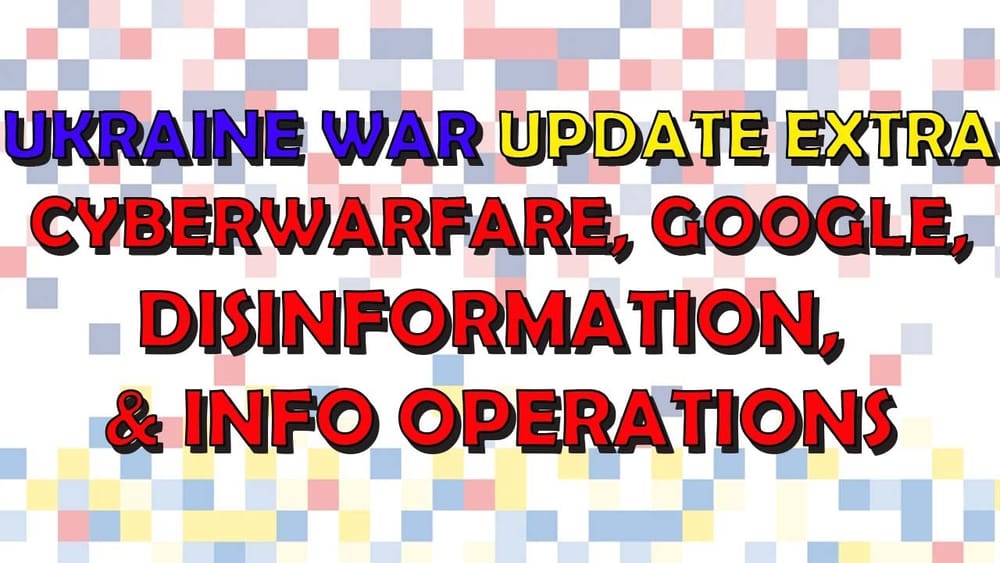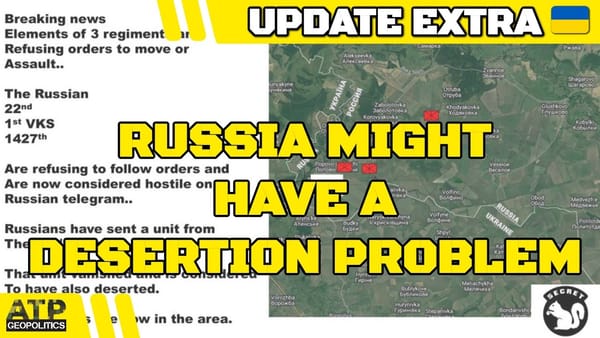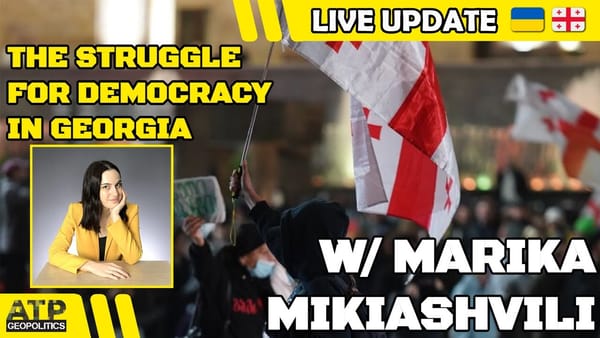Ukraine War Update EXTRA: Cyberwarfare, Google, Disinformation, & IO
Table of Contents 📖
| Topic ID | Topic Title | Timestamp |
|---|
"Debunking lies requires far more time and energy than the ready manufacture of more of them."
Hello Team!
Jonathan provides insight into cyber warfare and how it can be used to disrupt and damage an enemy, similar to conventional warfare targeting infrastructure. He notes it can often be cheaper and easier than physical attacks.
Return to top⤴️
Google's Role in Defending Ukraine
- Google is playing an important role in defending Ukraine and constricting Russia's abilities in the cyber realm. This includes providing workspace licenses, air raid alerts, limiting Russian state media, and more.
- The Ukrainian government is under near constant digital attack. Google has expanded Project Shield to protect Ukrainian government websites from DDoS attacks.
- Google continues to provide direct assistance to Ukraine through the Cyber Defense Assistance Collaborative.
Key Findings from Google's Work
- Russian government-backed attackers have engaged in an aggressive multi-pronged effort in cyberspace, often with mixed results. It's unclear if the underwhelming effects are due to strong defenses or lack of Russian capabilities.
- Moscow has leveraged the full spectrum of information operations to shape perception of the war. Google disrupted over 1950 instances of Russian IO in 2022, primarily focused on maintaining domestic support in Russia.
- The invasion has triggered a shift in the Eastern European cybercriminal ecosystem that will likely have long-term implications. Some groups have split over political allegiances while others lost prominent operators.
Cybercrime and the War
- Prior to the war, there was significant cross-border activity between Ukraine and Russia related to ransomware gangs.
- When the invasion began, some Ukrainian members turned on their Russian counterparts, leaking information to help take them down.
- The UK and other governments are now imposing sanctions and targeting these cybercriminals, putting a "chilling effect" on their activities and ability to operate.
- While not a "killer blow", these efforts are important in degrading Russia's access to these criminal groups over time.
FSB Disinformation: A Case Study
Jonathan discusses an FSB tasking document instructing a Russian journalist to spread disinformation about Ukrainian war deaths. Key points:
- The claims came from an alleged hack of a Ukrainian general's emails
- The FSB instructed the journalist to write that Ukraine was hiding its true death toll to avoid paying compensation
- However, the hacked documents show clear signs of forgery and manipulation
- This is an example of how Russian security services use local journalists to launder false narratives and pollute the information ecosystem
The Dangers of Disinformation
- Disinformation spreads much faster than the truth (up to 5x on social media)
- Debunking false claims takes far more time and effort than creating them (Brandolini's law)
- This is why the work of companies like Google to combat disinformation is so critical
- While freedom of speech is important, some regulation is needed when disinformation leads to tangible harm and danger
- Public support fueled by disinformation can prolong conflicts and cost lives
Wrap up
Jonathan encourages viewers to read the linked article "When Russian Propaganda Goes Hilariously Wrong" for more examples of clumsy disinformation attempts. He notes that this video focused on cyber warfare and information operations, with more extra videos on other topics to come.
Return to top⤴️




